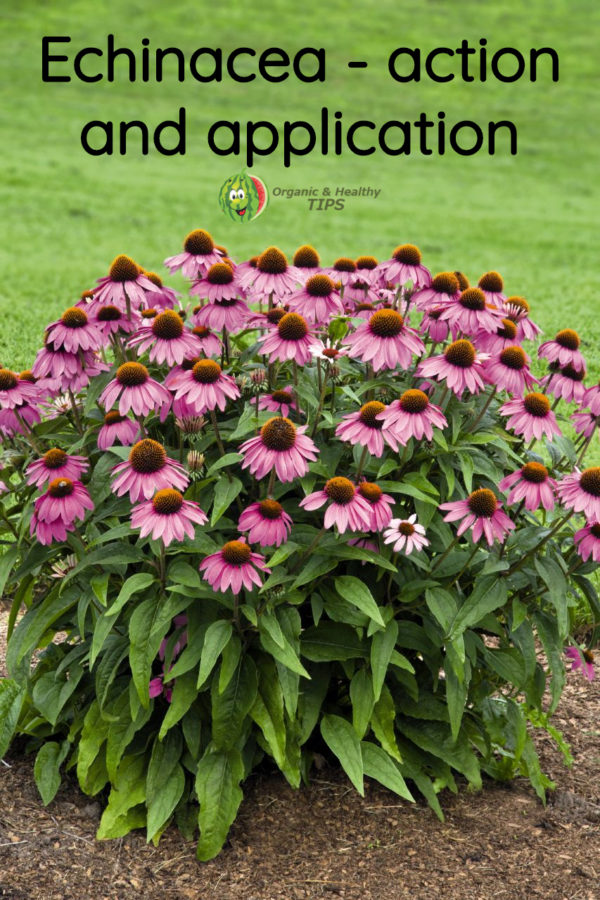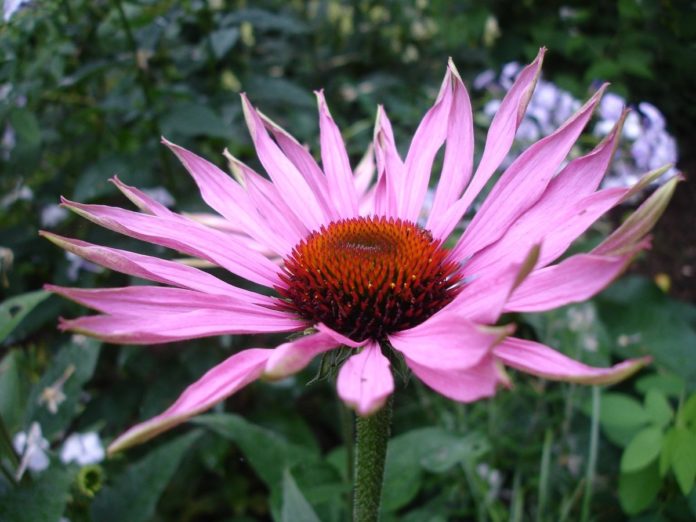White, pink or purple, also called the Indian plant. This is echinacea . Experts say the preventive use of echinacea may reduce the risk of rhinitis by 58%, and its application during illness reduces its duration almost twice.
There are nine types of echinacea, the most used are Echinacea angustifolia and Echinacea purpurea.
The main strength of the plant is expressed in its antimicrobial properties. Destruction of bacteria, fungi and viruses. It is not by accident that the echinacea is called the “natural antibiotic”.
The plant stimulates the immune system by increasing the formation of white blood cells. It has also been shown to stimulate the synthesis of interferon, a protein that the body synthesizes to fight viruses.
Echinacea is widely used in respiratory diseases – colds and flu. It affects the symptoms and strengthens the healing process. In a sore throat and pharyngitis, it reduces local inflammation and pain and restricts the nascent processes by eliminating microorganisms.
Very effective in bronchitis and sinusitis – it reduces inflammation by relieving pain and pain.
Prevention is recommended especially in people predisposed to such diseases – school-age children and the elderly.
As an immunostimulator, echinacea has an effect on a number of diseases.
Herpes . Herpes have been shown to develop with low immune protection. The use of Echinacea strengthens immune protection and strengthens the body’s resistive abilities. Helps heal wounds (in labyrinth herpes) and prevents re-infection.
As a natural antibiotic, the herb can be used in urinary infections – cystitis , urethritis .
The antibiotic effect is also applicable to frequently growing barley .
The effect of echinacea has been proven to be a preventive measure in otitis media. Pre-admission of the plant reduces the disease or significantly reduces its duration.
Echinacea has a plausible effect on the digestive system. Enhances the appetite stimulating the activity of the salivary glands. It also helps digestion in people with a lazy stomach.
The anti-inflammatory effect of the herb is useful in muscle injuries, especially those caused by muscle contractions during training. Inflammation of the tendon also affected.
It is also used externally for eczemas, dermatitis, herpes, aphthy, gingivitis, etc.
Echinacea can be found in various forms – tablets, drops, syrups, tea.








